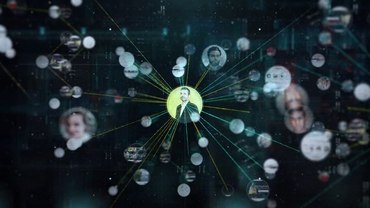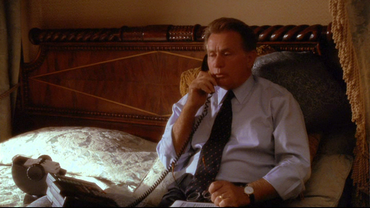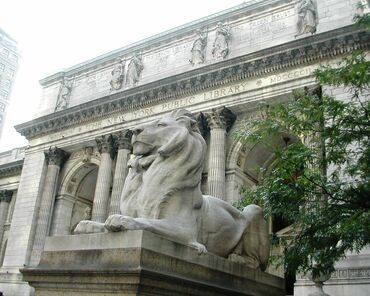Hypothetical risks
 "The problem isn't privacy," the cryptography pioneer Whitfield Diffie said recently. "It's corporate malfeasance."
"The problem isn't privacy," the cryptography pioneer Whitfield Diffie said recently. "It's corporate malfeasance."
This is obviously right. Viewed that way, when data profiteers claim that "privacy is no longer a social norm", as Facebook CEO Mark Zuckerberg did in 2010, the correct response is not to argue about privacy settings or plead with users to think again, but to find out if they've broken the law.
Diffie was not, but could have been, talking specifically about Facebook, which has blown up the news this week. The first case grabbed most of the headlines: the US Federal Trade Commission fined the company $5 billion. As critics complained, the fine was insignificant to a company whose Q2 2019 revenues were $16.9 billion and whose quarterly profits are approximately equal to the fine. Medium-term, such fines have done little to dent Facebook's share prices. Longer-term, as the cases continue to mount up...we'll see. Also this week, the US Department of Justice launched an antitrust investigation into Apple, Amazon, Alphabet (Google), and Facebook.
The FTC fine and ongoing restrictions have been a long time coming; EPIC executive director Marc Rotenberg has been arguing ever since the Cambridge Analytica scandal broke that Facebook had violated the terms of its 2011 settlement with the FTC.
If you needed background, this was also the week when Netflix released the documentary, The Great Hack, in which directors Karim Amer and Jehane Noujairn investigate the role Cambridge Analytica and Facebook played in the 2016 EU referendum and US presidential election votes. The documentary focuses primarily on three people: David Carroll, who mounted a legal action against Facebook to obtain his data; Brittany Kaiser, a director of Cambridge Analytica who testified against the company; and Carole Cadwalladr, who broke the story. In his review at the Guardian, Peter Bradwell notes that Carroll's experience shows it's harder to get your "voter profile" out of Facebook than from the Stasi, as per Timothy Garton Ash. (Also worth viewing: the 2006 movie The Lives of Others.)
Cadwalladr asks in her own piece about The Great Hack and in her 2019 TED talk, whether we can ever have free and fair elections again. It's a difficult question to answer because although it's clear from all these reports that the winning side of both the US and UK 2016 votes used Facebook and Cambridge Analytica's services, unless we can rerun these elections in a stack of alternative universes we can never pinpoint how much difference those services made. In a clip taken from the 2018 hearings on fake news, Damian Collins (Conservative, Folkstone and Hythe), the chair of the Digital, Culture, Media, and Sport Committee, asks Chris Wylie, a whistleblower who worked for Cambridge Analytica, that same question (The Great Hack, 00:25:51). Wylie's response: "When you're caught doping in the Olympics, there's not a debate about how much illegal drug you took or, well, he probably would have come in first, or, well, he only took half the amount, or - doesn't matter. If you're caught cheating, you lose your medal. Right? Because if we allow cheating in our democratic process, what about next time? What about the time after that? Right? You shouldn't win by cheating."
Later in the film (1:08:00), Kaiser, testifying to DCMS, sums up the problem this way: "The sole worth of Google and Facebook is the fact that they own and possess and hold and use the personal data from people all around the world.". In this statement, she unknowingly confirms the prediction made by the veteran Australian privacy advocate Roger Clarke,who commented in a 2009 interview about his 2004 paper, Very Black "Little Black Books", warning about social networks and privacy: "The only logical business model is the value of consumers' data."
What he got wrong, he says now, was that he failed to appreciate the importance of micro-pricing, highlighted in 1999 by the economist Hal Varian. In his 2017 paper on the digital surveillance economy, Clarke explains the connection: large data profiles enable marketers to gauge the precise point at which buyers begin to resist and pitch their pricing just below it. With goods and services, this approach allows sellers to extract greater overall revenue from the market than pre-set pricing would; with politics, you're talking about a shift from public sector transparency to private sector black-box manipulation. Or, as someone puts it in The Great Hack, a "full-service propaganda machine". Load, aim at "persuadables", and set running.
Less noticed than either of these is the Securities and Exchange Commission settlement with Facebook, also announced this week. While the fine is relatively modest - a mere $100 million - the SEC has nailed the company's conflicting statements. On Twitter, Jason Kint has helpfully highlighted the SEC's statements laying out the case that Facebook knew in 2016 that it had sold Cambridge Analytica some of the data underlying the 30 million personality profiles CA had compiled - and then "misled" both the US Congress and its own investors. Besides the fine, the SEC has permanently enjoined Facebook from further violations of the laws it broke in continuing to refer to actual risks as "hypothetical". The mills of trust have been grinding exceeding slow; they may yet grind exceeding small.
Illustrations: Data connections in The Great Hack.
Wendy M. Grossman is the 2013 winner of the Enigma Award. Her Web site has an extensive archive of her books, articles, and music, and an archive of earlier columns in this series. Stories about the border wars between cyberspace and real life are posted occasionally during the week at the net.wars Pinboard - or follow on Twitter.


